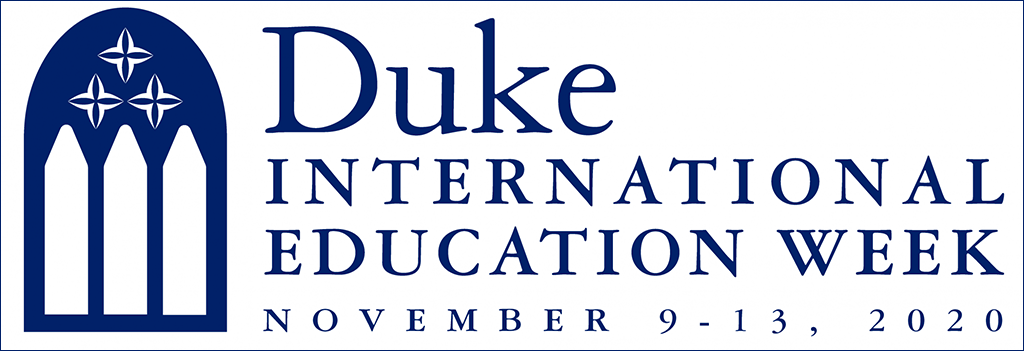Together Around the World: Bass Connections Teams Continue to Engage Globally Despite Pandemic
November 9, 2020

Duke celebrates International Education Week (November 9-13, 2020), reflecting on how the university's global reach has continued despite limits on travel due to the pandemic. With 18 Bass Connections project teams and two student research teams conducting international research this year, and many more teams with students participating remotely from around the world, teams have had to adapt their research methods and find new ways of developing relationships with international partners.
This effort has included working collectively to develop research protocols that enable partners to collect data that is then shared and analyzed by teams here in Durham. Many teams are also regularly engaging with partners via Zoom as well as conducting field interviews online. While this shift is not without challenges, it has also provided teams with new opportunities to conduct field research at a lower cost and to increase engagement with global partners throughout the year – not just when the academic calendar permits physical travel.
In this team profile, students from the Healthcare Provider Education to Reduce Epilepsy Care Disparities in Uganda project team describe how they have developed relationships with partners at Makerere University in Uganda and conducted field interviews via Zoom. They are working to develop an improved epilepsy education program for Ugandan clinicians that takes into consideration the country’s healthcare infrastructure and sociocultural context. Reflecting on the opportunity to have a global impact from afar, student team members noted:
“As we work with our partners in Uganda to improve care for patients with epilepsy, the threads that fundamentally unite global health, medicine, education and technology are more apparent than ever. Applying our interdisciplinary education in this global context has taught us the value of our liberal arts education. As undergraduates and medical students, building a curriculum of this nature and scope is both an exceptional challenge and an enormous privilege.”
Likewise, the Earthquake Early Warning in Nepal project team continues to work with partners at the Tribhuvan University Institute of Engineering (IOE) in Nepal to develop innovative seismic sensing technologies capable of early detection of a possible earthquake, while also considering the behavioral and policy landscape for any such system. Team members Kathryn Jenkins and James Marek reflect on the importance of their partnership with the IOE to their research and understanding of the landscape in Nepal:
“Working with the IOE in Nepal has played a vital role in my Bass Connections experience. As the team was a few months ahead in their work, they were able to introduce us to the project and give us a strong jumping-off point as we began our own research. The IOE team not only provides knowledgeable members to the team, but also first-hand perspectives and an inimitable understanding of the needs of the community we aim to benefit. I am so grateful to have the opportunity to learn from and work with the IOE team, and I look forward to continuing our research this coming year.” –Kathryn Jenkins, Electrical & Computer Engineering and Computer Science ’23
“I first got involved with the Nepal Earthquake Early Warning System project last October, learning the basics of hazard analysis based on the prior collaborative work of Duke and IOE students in Nepal. Although our plans to travel to Nepal this past summer were disrupted due to COVID-19, we picked back up this semester searching for a research topic to complement the extensive work being performed by our partners at IOE. After an in-depth look at their research, as well as multiple conversations on how our future work can build on theirs without encroaching, we have decided to focus on earthquake source clustering to build more accurate hazard relationships. My work with IOE over the last year has been truly amazing, and it’s exciting to see this relationship between the two institutions produce potential leaders in the earthquake field in Nepal.” –James Marek, Civil Engineering ’22
While the inability to travel for international field research has presented challenges to Bass Connections teams, students are adapting and continuing to learn about best practices in developing strong international research partnerships. These teams, along with their international research partners, continue to work “together around the world.”
Learn More
- Check out Together Around the World: International Education Week at Duke, including events taking place throughout the week and international book recommendations from Duke alumni.
- Find out what we’re learning about Bass Connections’ impact on students and faculty.
- Browse the Bass Connections 2019-2020 Annual Report.
